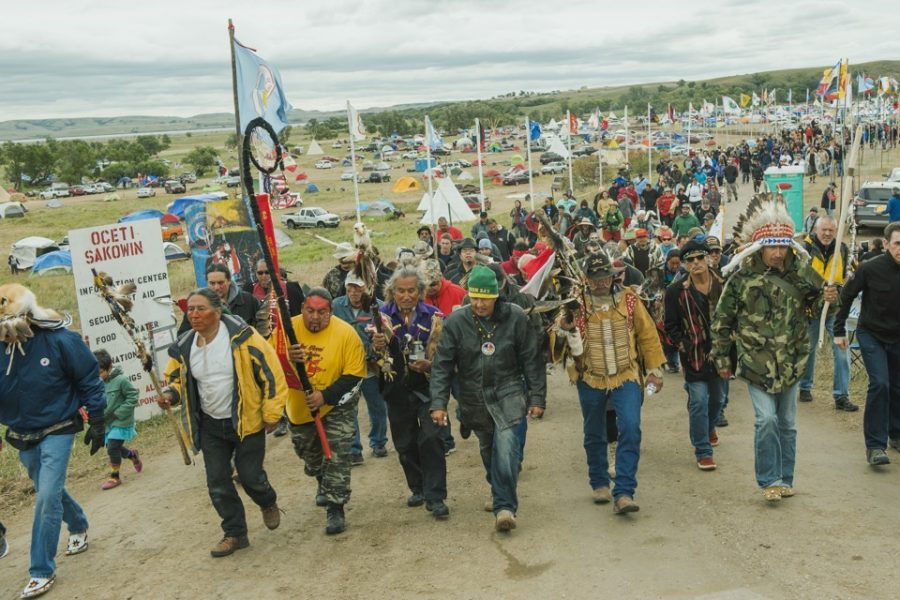What You Need to Know About the Dakota Access Pipeline
Nov 14, 2016
The Dakota Access Pipeline Project (DAPL) has become a topic of controversy in the last half of 2016, especially amongst Native Americans. The pipeline will enable domestically produced crude oil to reach refining markets in a more environmentally conscious and cost effective manner. The 1,172 mile pipeline will connect areas in North Dakota to Illinois, beginning by the end of 2016, if it is approved. In Sept., the Obama Administration took temporary action against the DAPL, appeasing the many who oppose it. This pipeline could possibly pollute drinking water and destroy land that is culturally important to Native Americans.
The Standing Rock Sioux, the Native American tribe that has been strongly opposing the pipeline, worries that construction would destroy tribal land and ancient tribal artifacts. They, along with environmental activists, have been pushing for construction to be halted, through demonstrations that have turned violent. The Standing Rock Tribe did not actually participate in the extensive meetings that were held to discuss the project, despite having been invited, but are now fighting against a threat to their land, the environment, and against corporate greed. The protests and demonstrations have attracted thousands of people from around the world, so much so that if one were to visit the grounds, there would now be little notice of Standing Rock Sioux. What initially began as a fight for their tribal lands has turned into madness, leaving people arrested, children orphaned, and even some injured. When law enforcement authorities stepped in, the situation turned violent with the involvement of rubber bullets, tear gas, and other methods, according to the Native Americans. Due to the negative turn the protests took, many Sioux have denounced these actions, although still being against the construction of the DAPL.
“The construction of the pipeline should be halted, considering it’s infringing upon the rights of Native Americans to their tribal lands. We already stole their lands once, I don’t think it would be right to do that again,” sophomore Jack Band said.
Environmental activists have criticized the approval process of the $3.8 million project, arguing that it was not subjected to the proper method of inspection. They worry that corporations found a loophole through which to push approval of the pipeline without the correctly assessing the consequences. Dallas Goldtooth, an activist with the Indigenous Environmental Network explained that the backdoor was used because “the antiquated permitting process was not designed for mega fossil fuel projects”. Additionally, critics denounce the lenient environmental review that the pipeline underwent, which didn’t take into account the risks of potential oil spills and the negative impacts on climate change. The DAPL will cross under the Missouri River, adding to the detrimental effect that an oil spill would have. A spill would threaten drinking water down the river, affecting thousands of communities.
“I’m against the pipeline because of the environmental issues that surround it, I don’t think we should build something that could hurt our environment even more,” sophomore Lucia Meyer-Wilson said.
The pipeline will most likely be completed either, near the end of 2016 or beginning of 2017, whether protesters agree or not. Already almost 70% completed, it is doubtful that construction will be halted, especially considering the division of opinions among Standing Rock Sioux, and the lack of unity amongst protestors. The Native American tribe has filed a lawsuit against the Army Corps over the approval process, and many lawyers have expressed their concerns with the legal procedures as well. The decisions made by the Obama Administration will affect the lives of many, no matter which way they choose. Furthermore, the recent election of Donald Trump as the next U.S. President will most likely result in support for corporations building the pipeline-reverting the progress of activists and the Standing Rock Sioux.
























